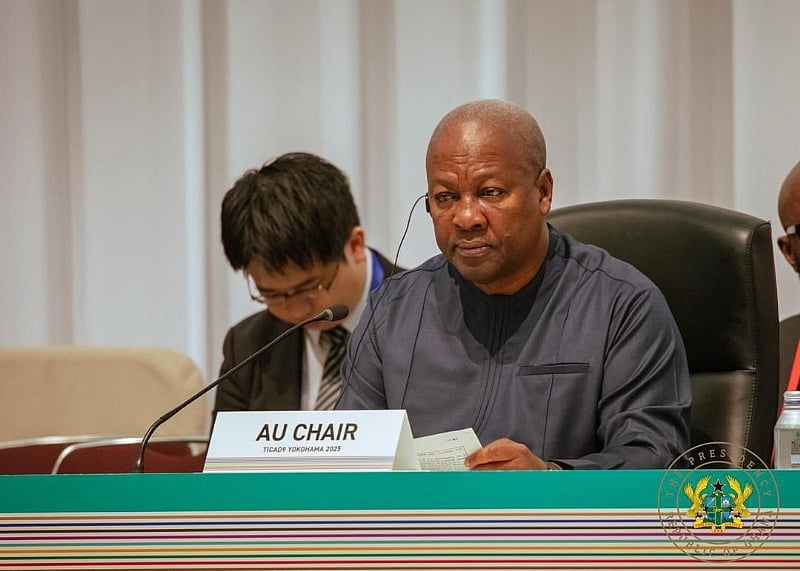President John Dramani Mahama of Ghana has unveiled a comprehensive plan to curb the nation’s exorbitant spending on rented diplomatic properties overseas. Characterizing the current practice as fiscally unsustainable, President Mahama revealed that Ghana expends over $15 million annually on rent for its foreign missions. This substantial financial outflow, he argued, constitutes an imprudent use of taxpayer funds and necessitates a decisive shift in approach. The President’s announcement, made during the swearing-in ceremony of a new cohort of diplomatic envoys, underscores the urgency of this issue within his administration’s broader “reset agenda.” He emphasized the need for immediate action to reverse this trend and alleviate the pressure on the public purse.
The core of the President’s initiative lies in a strategic transition from renting diplomatic properties to owning them. This ambitious project, aptly named STRIDE (Strategic Transition from Rental to Developing our own Properties), aims to significantly reduce long-term costs and enhance Ghana’s international standing. By investing in the construction and ownership of these properties, the government seeks to eliminate the recurring expense of rent and ensure that Ghanaian missions abroad are housed in appropriate facilities that reflect the nation’s dignity and stature on the global stage. President Mahama stressed that this strategic move represents not just a fiscal imperative but also a symbolic one, demonstrating Ghana’s commitment to responsible resource management and its long-term vision for its diplomatic presence.
To expedite the implementation of STRIDE, President Mahama has directed the Ministries of Foreign Affairs and Finance to prioritize this project. He disclosed that a transaction advisor has already been appointed and that standardized designs for the new diplomatic properties are currently under development. This proactive approach signals the government’s commitment to efficiently and effectively executing this transition. The standardization of designs is particularly significant, as it will likely streamline the construction process, ensure cost-effectiveness, and facilitate quality control across various projects. Furthermore, appointing a transaction advisor will bring specialized expertise to navigate the complexities of international real estate acquisition and development, minimizing potential risks and maximizing value for the Ghanaian government.
President Mahama’s vision for STRIDE extends beyond mere cost savings. He envisions these new diplomatic properties as more than just functional office spaces; he sees them as vital platforms for advancing Ghana’s economic diplomacy. He urged the newly appointed envoys to actively promote Ghana as a prime destination for investment, emphasizing its stable democratic foundation and abundant opportunities. By showcasing Ghana’s economic potential, the President hopes to attract foreign investment that will contribute to the nation’s economic growth and development. These owned properties will provide a tangible representation of Ghana’s stability and commitment to international engagement, fostering trust and confidence among potential investors and partners.
The transition to owned diplomatic properties represents a multifaceted approach to strengthening Ghana’s international presence. By eliminating the substantial financial drain of rental payments, the government can redirect these funds towards other critical areas, such as infrastructure development, education, and healthcare. Furthermore, owning these properties offers Ghana greater control and flexibility in managing its diplomatic operations. This will also allow the missions to be tailored to the specific needs of each location, ensuring optimal functionality and effectiveness. No longer subject to the constraints of lease agreements, Ghana can adapt its facilities to accommodate evolving diplomatic requirements and project a consistent image of professionalism and stability.
In sum, President Mahama’s initiative to transition from rented to owned diplomatic properties signifies a significant step towards fiscal responsibility and a more robust international presence for Ghana. STRIDE is not merely a cost-cutting measure; it is a strategic investment in Ghana’s future, paving the way for enhanced diplomatic engagement, greater economic opportunities, and a more dignified representation of the nation on the world stage. By prioritizing this initiative, President Mahama demonstrates a commitment to prudent financial management, long-term strategic planning, and a vision for a more prosperous and influential Ghana. The successful implementation of STRIDE promises to yield both tangible and intangible benefits, solidifying Ghana’s position as a respected and dynamic player in the international community.














